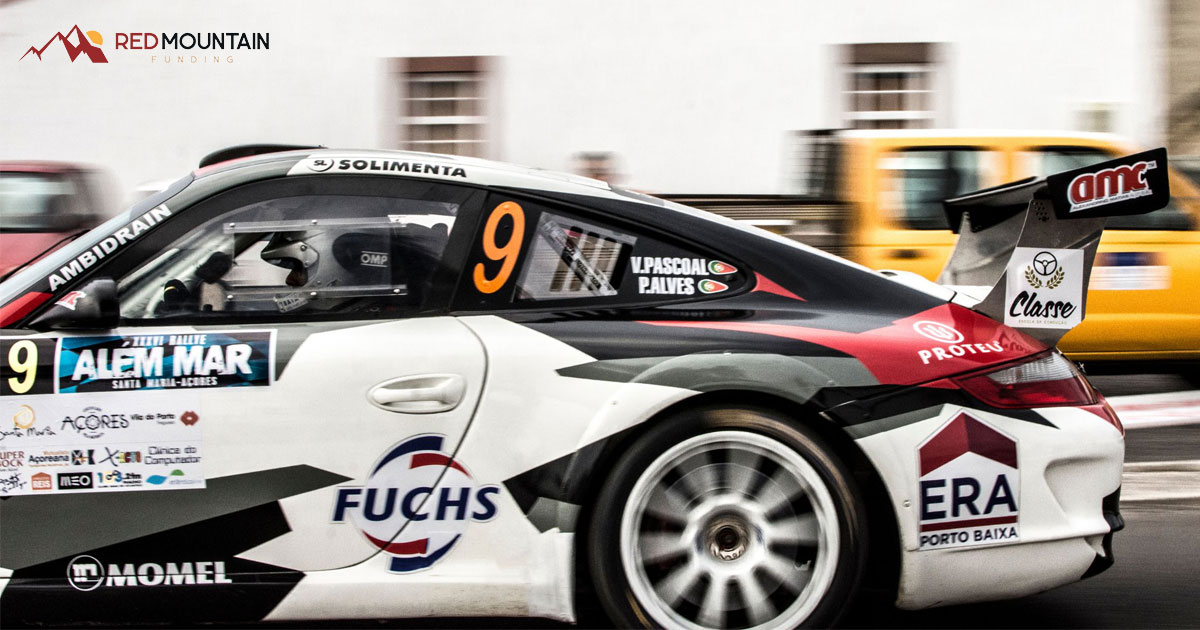Perhaps the greatest victory of Porsche Motorsports is that they have more than 30,000 race victories, which is a number no other brand can touch. With 17 Le Mans trophies, 11 Targa Florio victories, two Dakar Rally wins, and one Grand Prix title among the best Porsche victories, picking the greatest of them would be no small feat, so this list is inconclusive, to say the least.
It is a celebration of a handful of the greatest triumphs from the brand with the most wins and perhaps the greatest motorsport brand of all time: Porsche.
Le Mans 1970
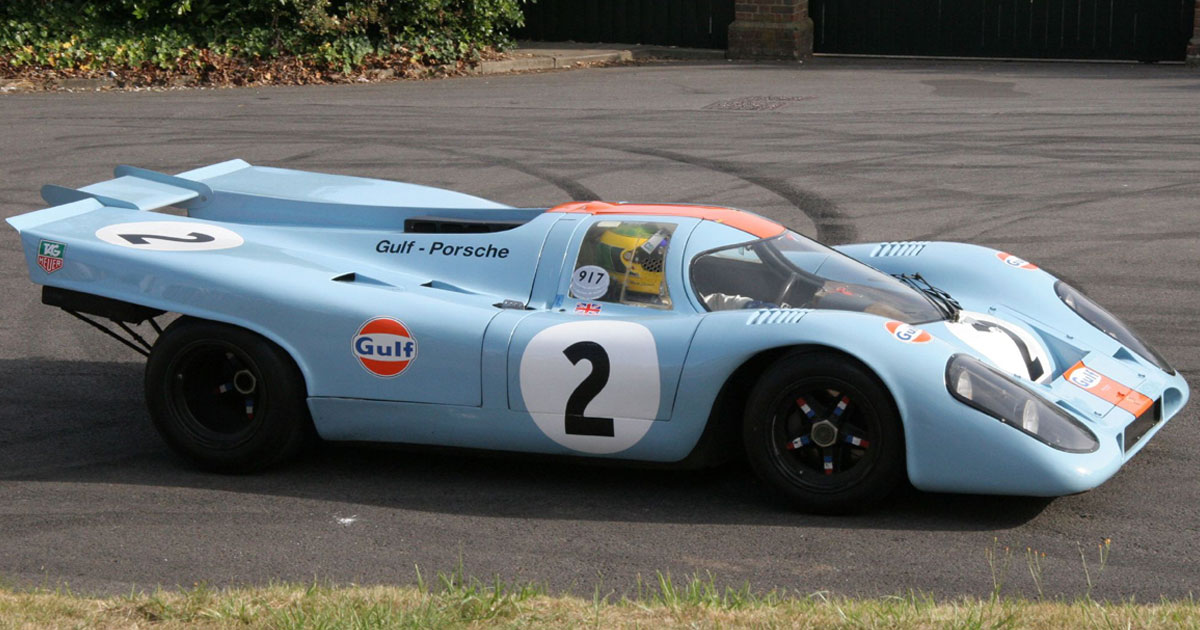
Image credit: Wikipedia
In 1967, the rules changed for the International Championship for Sports Cars. As a result, the Stuttgart-Zuffenhausen team went to work to design a new under-five-liter class racecar, and thus, the Porsche 917 KH Coupé was born. Following the successful 907 and 908, the 917 was a 12-cylinder, air-cooled engine with 580 horsepower.
In 1970, drivers Hans Herrmann and Richard Attwood drove the Kurzheck across the finish line of Le Mans. While their first-place win was one to be celebrated, Porsche impressively also took the first 16 victories at the event, including second place in the Martini-917 and third place in the Porsche 908/02. With nothing but Porsche winners across the podium, this became an iconic race that cemented Porsche as a winning brand in racing. Consequently, racing number 17 pays homage to the one that drove before, the 917.
Le Mans 1971
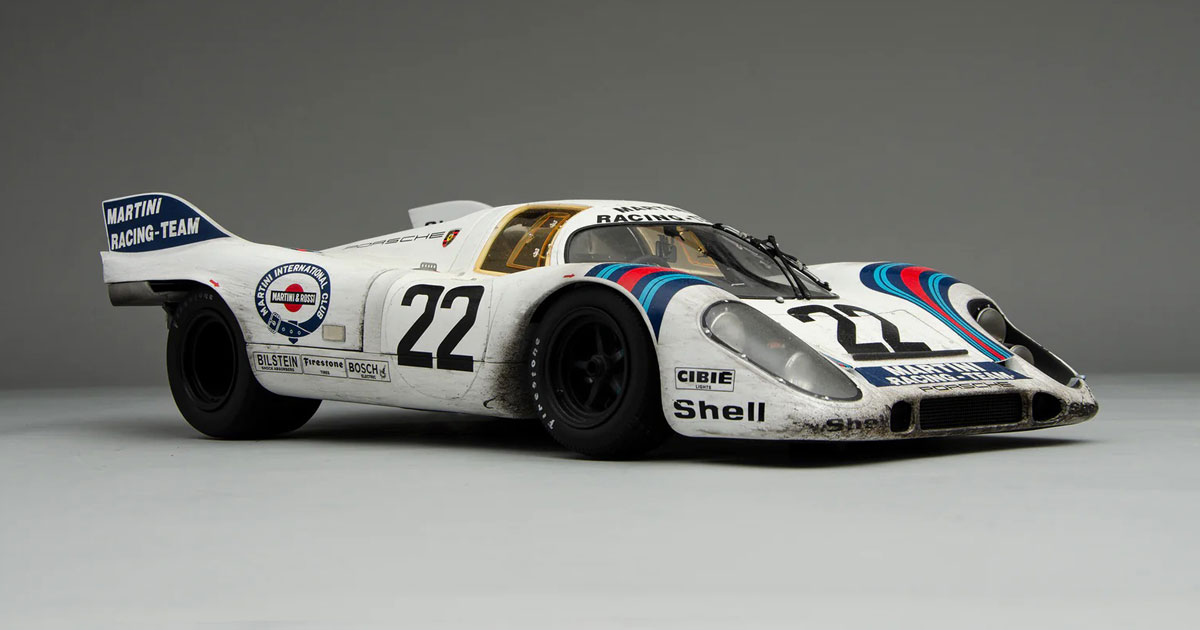
Image credit: Amalgam Collection
At Le Mans 1971, there was little doubt one of the six Porsche 917s that started the race would place, but one of these cars stood out. Number 22 was a white car with classic Martini stripes and shark fins, a contemporary design feature Porsche had just introduced. The fins added stability and offered an 11% decrease in wind resistance. The car was so light they had to put in a larger 58-quart oil tank to make the required weight.
The car carried drivers Gijs van Lennep and Helmut Marko to victory and set two 39-year records in the process. As if anyone needed more confirmation that Porsche was the car to drive, the finned Porsche 917 KH 1971 won the Index Performance award for lowest fuel consumption.
Can-Am 1972 & 1973
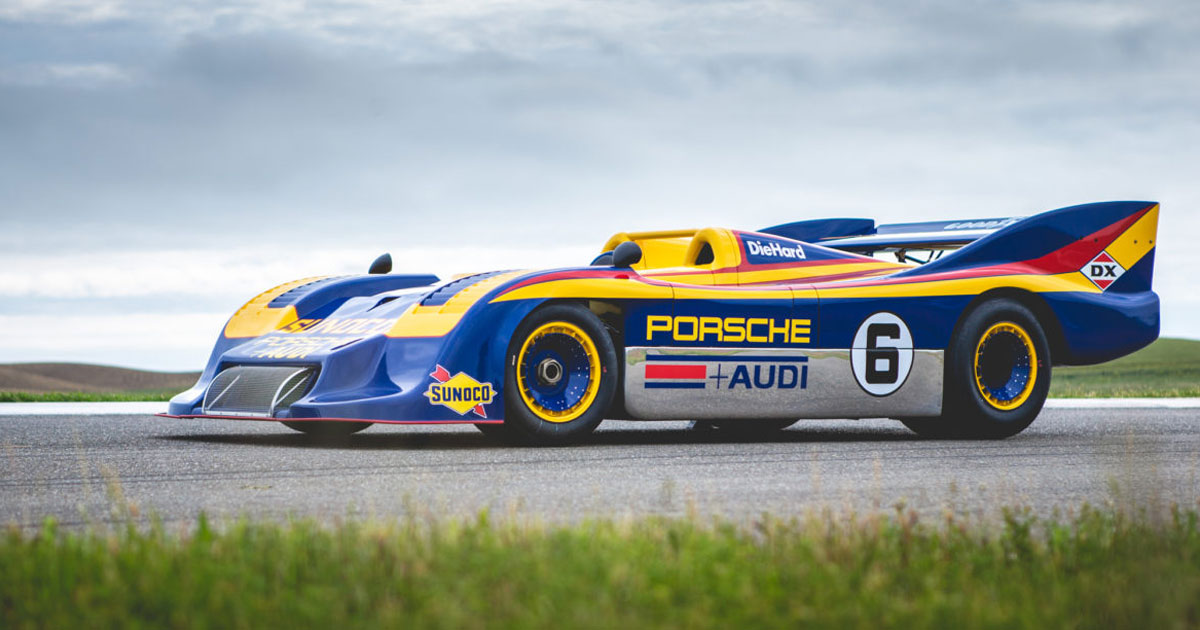
Image credit: Canepa
The Can-Am race was a racing series that had virtually no technical regulations and very few rules. It allowed drivers and car designers to bend the rules that didn’t exist and create unfair advantages that optimized their chances to win over those of other racers. It was a racing series that was as close to anarchical as possible, which makes for another intriguing and history-filled victory for Porsche.
Mark Donohue drove the most powerful race car ever, the Porsche 917/30, to victory in the 1973 Can-Am Championship. The 1500+ horsepower air-cooled car took five first-place wins and one second-place finish, taking the entire season with it. What makes this victory even more monumental is that Donohue, a racing legend, died in 1975 from a racing accident-related injury. Racing is a dangerous business to be in, and when brave but legendary drivers lose their life to the sport, it is a pain that is deeply felt within the community. One of his most significant victories created the legend that is Donohue.
Donohue raced in the prior year’s 1972 Can-Am, which proved to be a monumental event for the sport and included multiple racing milestones. Donohue finished in second despite a stuck turbo throttle cap that had fallen victim to track dust, thus setting him back in the race. But it is what he was driving that is memorable. He drove the 1000 hp Porsche 917/10, a race car that was ahead of its time with an exhaust gas turbocharger.
With Donohue behind the wheel, this race also marked the first convergence of Porsche and Team Penske, a partnership that has contributed to the progression of motorsport as it is known today. It all started with those first two seasons, during which Team Penske and Porsche landed 11 victories over 17 races.
Manufacturers’ World Championship 1976 & 1977
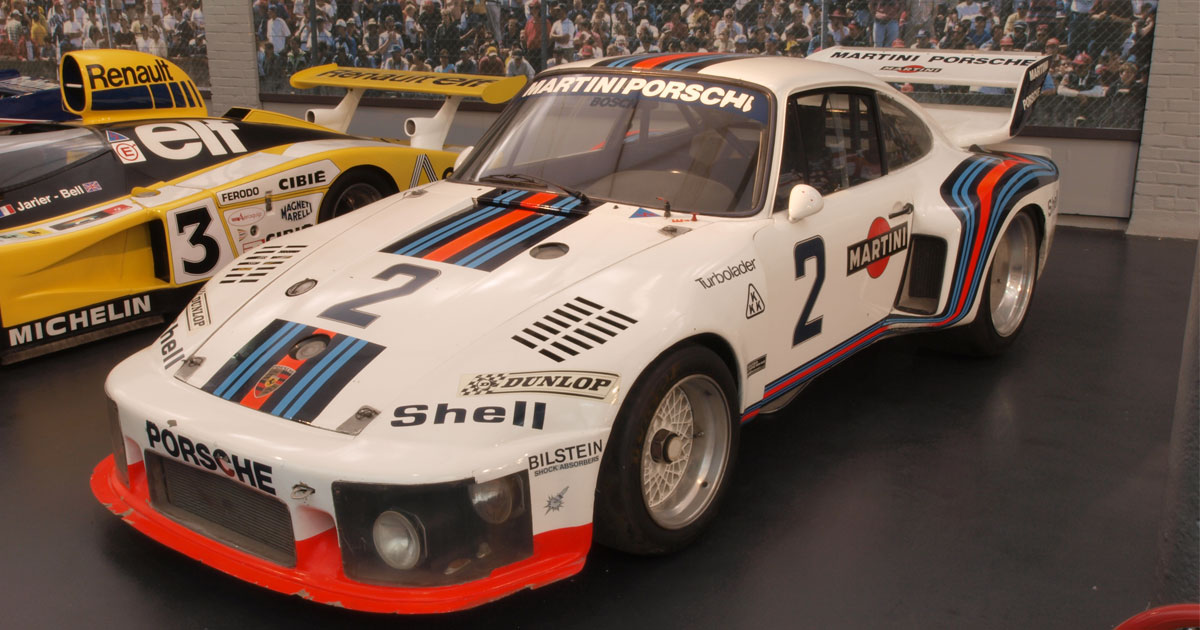
Image credit: Wikipedia
Emerging out of the prototype racing era, the flatter-nosed Porsche 935 debuted as an improvement on the 911. It boasted 600 horsepower, more aerodynamic qualities, and a prominent double wing on the rear. The new design was triumphant, winning the 1976 Manufacturers’ World Cup.
But the Porsche 935 was not done. The 1977 edition presented an even more aerodynamic design and a boxer engine with dual turbochargers, the additional engine adding another 30 horsepower. With this victory, Porsche held their title for another year. Drivers Jacky Ickx and Jochen Mass took the Manufacturers’ World Championship victory in 1977, as well.
Le Mans 1982, 1983, 1984, 1985
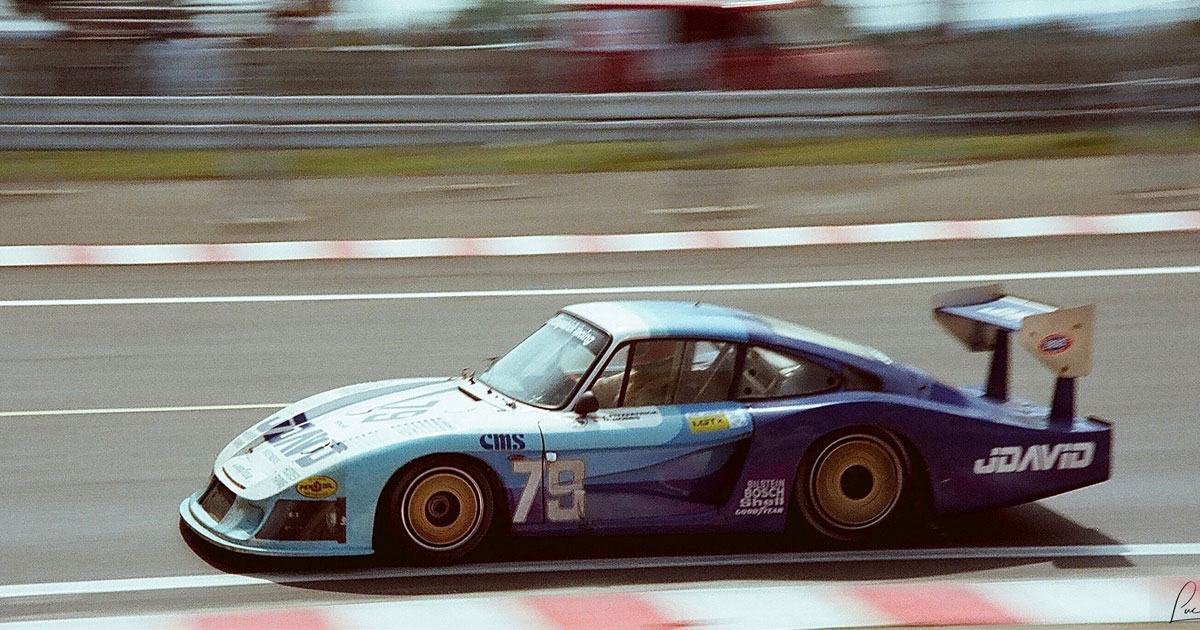
Image Credit: Car Racing Reporter
The racing world of 1982 never saw it coming, but the Porsche 956 C made its presence known. The aluminum monocoque chassis was this car’s ace in the hole, coupled with an efficient turbo engine, ground effects, and revolutionary aerodynamics. The interaction of these components created the perfect storm on the track.
The 956 C dominated with a double-clutch transmission, morphing into the 962 in 1984 when designers began anticipating new regulations that would change the game in 1987. For its time, the car was unbeatable, winning Le Mans in 1982, 1983, 1984, and 1985.
Nordschleife 1983
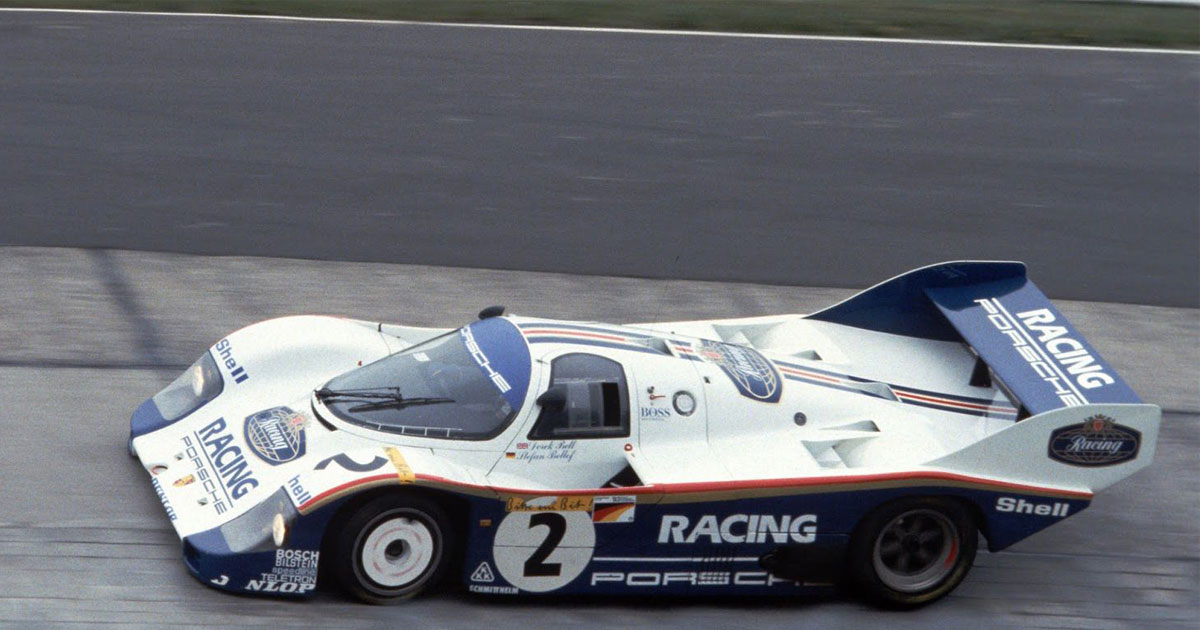
Image Credit: Road & Track
While fans watched drivers Jochen Mass and Jacky Ickx finish first in a Porsche 935 2.6L Turbo Flat-6, which was itself a victory for Porsche, the more notable event of this race occurred with German driver Stefan Bellof. He finished 22nd but set a record lap of 6:11.13 in a Porsche 935 3.0L Turbo Flat-6. It was an incredible time and a record he would hold until 2018. Bellof’s record lap was one of the greatest driving performances the world will ever see.
The driving was all Bellof, but the car was faster mostly because of the innovative ground effect design, which used underbody channels to generate unprecedented downforce. The 956 was exceptionally fast but also hard to navigate on a narrow track. Mid-race in the 1983 Nordschleife, tempers flared among drivers, which fueled Bellof’s fastest lap. Unfortunately, he then went on to crash later in the race, walking away unharmed but losing the race as a result.
Bellof went on to win the 1984 World Sportscar Championship the following year in a Porsche 956. Tragically, he was killed in an accident during the 1985 Spa 1000km. Bellof was one of the most promising Formula 1 drivers at the time, and sadly, he never got to truly live up to his full potential. In 2013, the part of the track where Bellof died was renamed for him and commemorated by teammate Derek Bell, who took a lap in the 956 in Bellof’s honor. Bell’s lap served as a tribute to Bellof on behalf of Porsche and all the fans who met him at the finish line.
Le Mans 1998
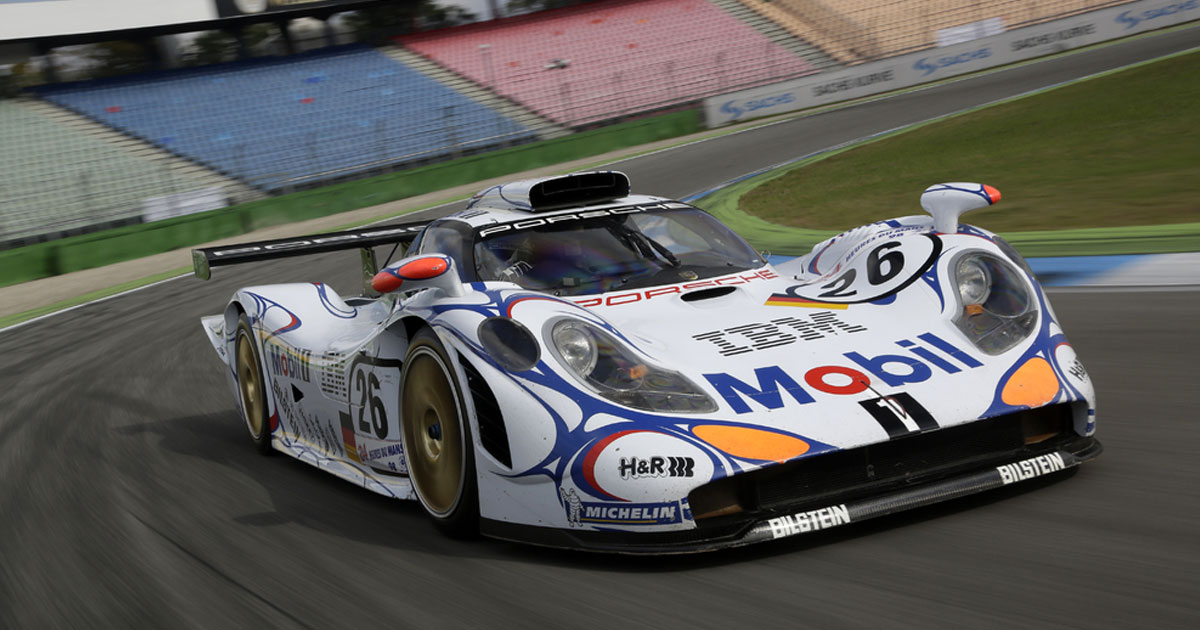
The 911 GT1 was first introduced in 1996 and was the first 911 with an aerodynamic, balanced axle load and water-cooled mid-engine. Losing only to a TWR-Porsche WSC 95, the new GT1 took second and third place at Le Mans 1996. A re-mod of the 911GT1 entered the scene in 1998 and featured the first carbon-fiber chassis.
With the new reinforced carbon fiber, plastic monocoque, modified front suspension, and lighter battery and generator, the 1998 model was an impressive 110 pounds lighter than the 1996 911GT1. The updated version also optimized engine management to further reduce consumption. Add in a three-disc, carbon fiber racing clutch, and you can see why Porsche took the win in 1998. Drivers Laurent Aïello, Allan McNish, and Stéphane Ortelli brought home the victory for Porsche’s 50th anniversary, a monumental victory that will be remembered for years to come.
Le Mans 2013
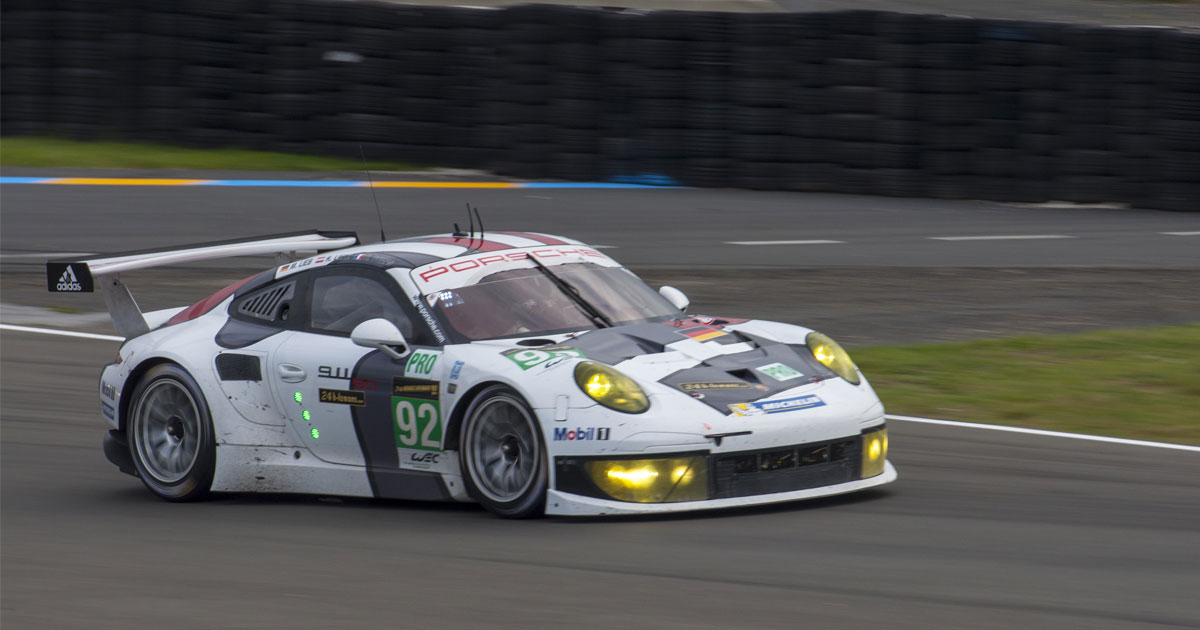
Image Credit: Wikimedia Commons
It was the 911’s 50th birthday, and driver Marc Lieb was in a new car and driving for a new team. No one expected a victory, but the team raced with a passion anyway. It turned out that the fate of racing would show both sides of the coin: Lieb drove the Porsche 911 RSR across the finish line to place first more than two minutes faster than its sister car, making it one of the greatest Porsche victories of all time. For Lieb, though, it was also the saddest victory of his career, as Aston Martin driver Allan Simonsen collided with the guardrail early in the race and lost his life at the Tertre Rouge corner.
Le Mans 2017
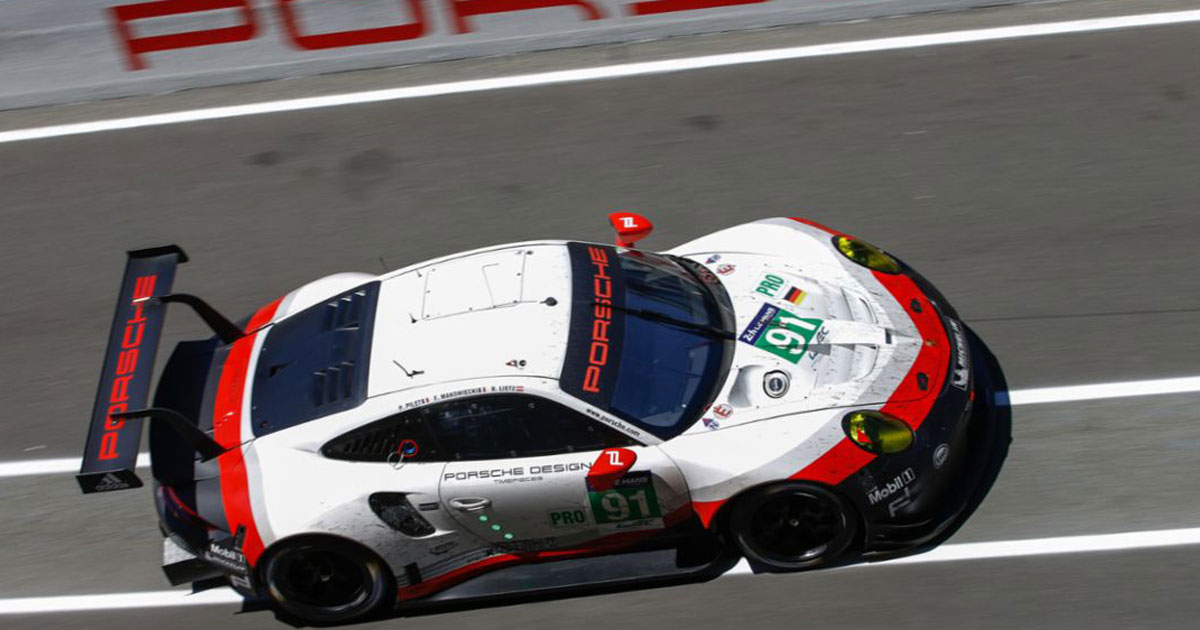
Image Credit: Porsche Newsroom
The year marked the 70th anniversary of the Porsche brand, but it was considered a developmental year due to changes in weight distribution. Though these changes gave the team new insight in terms of tire use, they were apprehensive about the learning curve. However, the learning curve was much shorter than they imagined.
In honor of the anniversary, the 911 RSR had been given a historic aesthetic, and Italian driver Gianmaria Bruni set a new GTE record at Le Mans with a 3:47.504 lap time. Taking the win were drivers Earl Bamber, Timo Bernhard, and Brendon Hartley in a Porsche 919 Hybrid. They took the lead only in the last two hours of the race, marking the commemorative year for Porsche.
Porsche Track Experience
Watching driver footage from behind the wheel of professional racing drivers handling the 87 ridiculous corners of the Nordschleife instills an appreciation for the sport. Watching is one thing, though; experiencing it personally is in an entirely different realm of glory. The track is one of the most notorious in the world and incorporates blind corners, steep hills, and frequent variances in topography. The legendary Jackie Stewart called it the “Green Hell” for its merciless and demanding progression that spans 21km and rewards drivers with a mere few seconds to glimpse the beauty of the spectacular views of the German countryside.
What is most spectacular is that the Porsche Track Experience provides anyone willing the chance to drive the Nordschleife and other legendary tracks across the world. With various experiences offered, Porsche owners can learn how their cars were meant to be driven and discover what their cars are capable of on the track. Other experiences include training schedules for amateur and professional drivers, as well as instructed test drives for curious Porsche lovers. This opportunity creates a unique Porsche victory for each visitor, something few brands can say they offer.
Suggested Reading: Most Iconic Auto Designers
Fans Haven’t Seen Anything Yet
With so many remarkable stories of Porsche cars, drivers, teams, and victories, it is hard to imagine anything better than the Porsche of yesteryear. However, the story is not finished, and perhaps the best Porsche motorsport wins are still yet to be seen. Anticipation rumbles across the backstretch; pride swells within the winner’s circle; fans know better than to take their eyes off the track, for the moments that mark racing history happen much too fast to look away.
With the end of factory engagement of the 911 RSR, the new 963 debuts this year; the two will race side-by-side for the time being.
Also on the horizon is the re-convergence of the Porsche Penske Motorsport squad and two prototype hybrids. One will debut in the 2023 FIA World Endurance Championship WEC and the other in the North American IMSA WeatherTech SportsCar Championship. Thus, Porsche has set the stage for more victory and adventure. If Porsche’s future is anything like its past, there will be many opportunities for triumphs of all kinds.
Porsche: The World Motorsports Champions
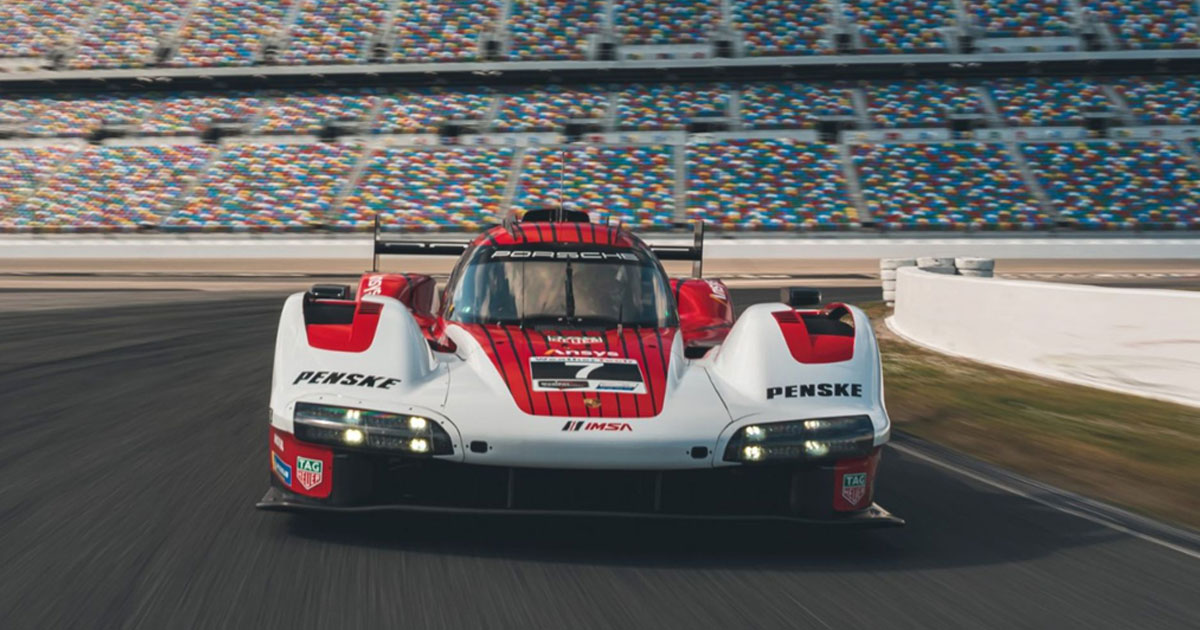
In conclusion, the Porsches of motorsport history have left an indelible mark on the racing world. Whether it was the countless victories at Le Mans, the ferocious battles in rally circuits, or the sheer dominance in touring car competitions, Porsche’s legacy is a testament to the dedication, innovation, and passion of its drivers and engineers.
Through it all, one thing remains clear: Porsche will always be a champion in the world of motorsports, and their greatest victories will continue to inspire future generations of racers for years to come. So next time you see a Porsche race car speeding down the track, remember the incredible triumphs that made it a true icon in the world of motorsports.
I’m a kid at heart disguised as an auto researcher and business owner. I’ve always enjoyed providing insight in the form of reviews (anime, video games, autos, etc.) When I’m not researching, I’m spending time with my family, driving my Dodge Challenger, riding my motorcycle, and finding new entrepreneurial pursuits.
